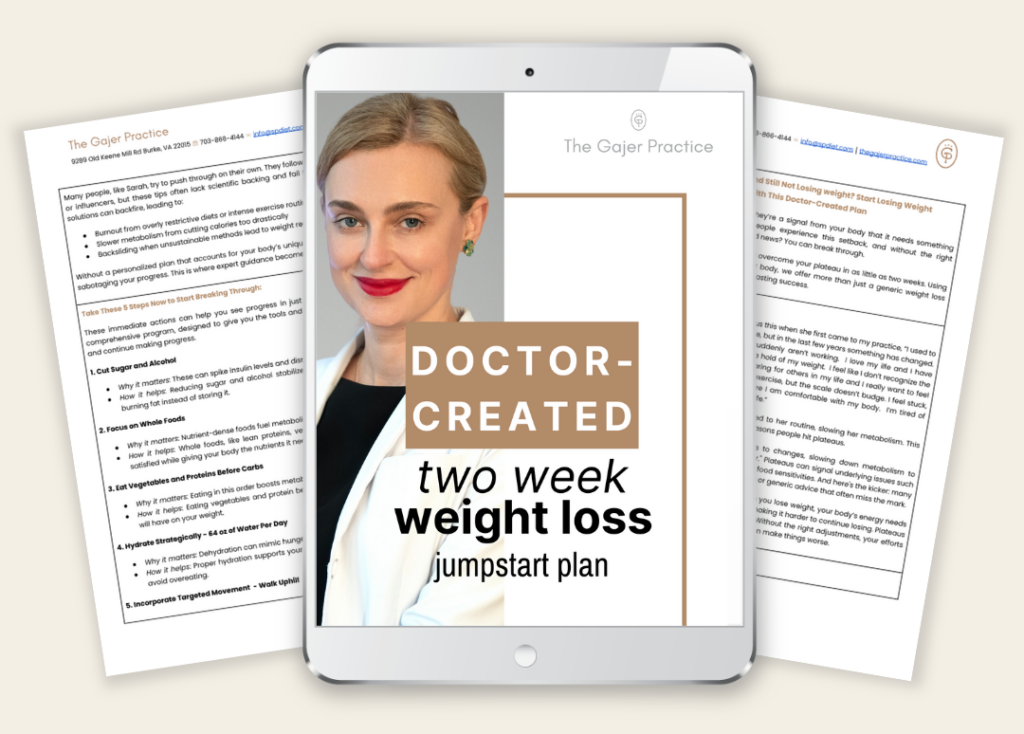Dear readers,
I have wanted to write a more personal blog to our beloved community about the state of general unease many of us in the greater Washington, DC area are experiencing. Many of us are currently being affected by big changes in the region and the global fear and anxiety around us is palpable.
I want to offer support and tips and tricks to handle stress, anxiety, fear and insecurity the best we can. While we may not be able to change the outward circumstances, we must remember that we can control our responses and reactions.
Although most of my practice deals with internal medicine, weight loss, hormones and aesthetics, I think healthy inner lives are foundational for health. Medicine has become increasingly siloed over the last 50 years with specialists and ultra specialists for different body systems and parts. In some ways, we have lost sight of the connections within our bodies. Nothing in the human body or mind works in isolation. Thoughts produce feelings, which produce hormones and chemical messengers that dictate how every other system in the body works. And we have way more control over these cascades of chemical messengers than we might suspect.
Our human lives are a series of ups and downs, with periods of smooth sailing inevitably interrupted by problems or inconveniences. Most people endeavor to set up their lives to limit the problematic periods, but life has a way of throwing curve balls in even the best designed plans. When this happens, we have a choice—either to let these time periods bring us down and steal our joy and happiness, or to see them as part of a cycle that will self-correct if we do the right things and keep our faith. The latter may seem difficult, but there are tools that make this a whole lot easier.
Today I want to lay out 3 tools that I find very helpful in my own life and that of my patients: nervous system resets, support and connection, and gratitude.
Nervous System Resets
During periods of high stress, the sympathetic or “fight-or-flight” nervous system takes center stage. This evolutionary response was designed to help us survive immediate threats, flooding our bodies with stress hormones like cortisol and adrenaline. While this response is helpful in true emergencies, chronic activation leads to a host of health problems including disrupted sleep, compromised immunity, and increased inflammation.
The good news is that we can intentionally activate our parasympathetic “rest-and-digest” system through simple practices:
- Deep breathing: Try the 4-7-8 technique (inhale for 4 counts, hold for 7, exhale for 8). Just 2-3 minutes can significantly shift your nervous system state.
- Cold exposure: A brief cold shower or splashing cold water on your face activates the vagus nerve, immediately calming your system.
- Physical movement: Even gentle stretching or a short walk helps metabolize stress hormones and brings you back to the present moment.
- Mindful sensory awareness: Focus on what you can see, hear, feel, smell, and taste right now. This simple grounding technique interrupts anxious thought patterns.
These practices aren’t just “nice to have”—they’re physiological interventions that directly impact your hormones and neurotransmitters.
Support and Connection
Humans are social creatures, and isolation exacerbates stress. Research consistently shows that meaningful connection is a powerful predictor of both mental and physical health. During challenging times:
- Reach out to trusted friends or family members who listen without judgment
- Consider professional support through therapy or counseling
- Join community groups with shared interests or concerns
- Volunteer—helping others has been shown to reduce stress hormones
- Be selective about media consumption and social environments that increase anxiety
Remember that vulnerability is not weakness—it’s the foundation of genuine connection. Sharing your struggles often reveals that you’re not alone in your experience.
Gratitude Practice
The human brain has a negativity bias—we’re wired to focus on potential threats and problems. This was useful for survival in prehistoric times but creates unnecessary suffering today. Gratitude practice is a powerful antidote:
- Start or end each day by noting three specific things you appreciate
- Focus on the small pleasures: morning coffee, a comfortable bed, a moment of laughter
- Express thanks directly to others—this doubles the positive impact
- Keep a gratitude journal to create a record you can review during difficult times
- Notice the contrast between what you have and what could be missing
Gratitude doesn’t mean ignoring genuine challenges. Rather, it helps maintain perspective and builds resilience by reminding us of the resources—both internal and external—that we can draw upon.
Permission to Exhale
Perhaps the most important reminder is that you have permission to exhale—to release the tension you may be holding physically and emotionally. You have permission to take breaks from worrying about the future. You have permission to focus on your well-being even when circumstances feel chaotic.
As a physician, I can assure you that investing in these practices isn’t self-indulgent; it’s essential healthcare. The mind-body connection is real, and nurturing your mental well-being translates directly to physical health outcomes.
I invite you to try implementing even one of these tools this week. Notice what shifts, both internally and in your interactions with others. And remember that our practice is here to support you not just with physical health concerns, but with whole-person wellness.
Your partner in health,
Dr. Gajer






